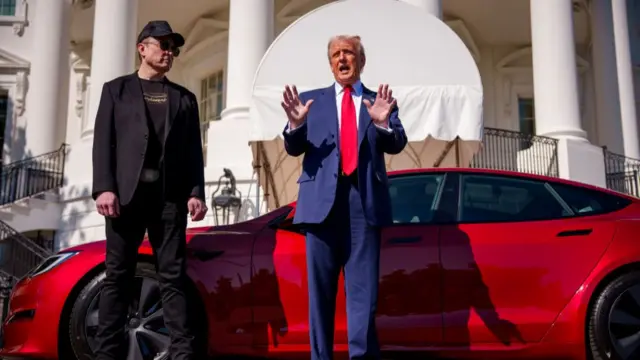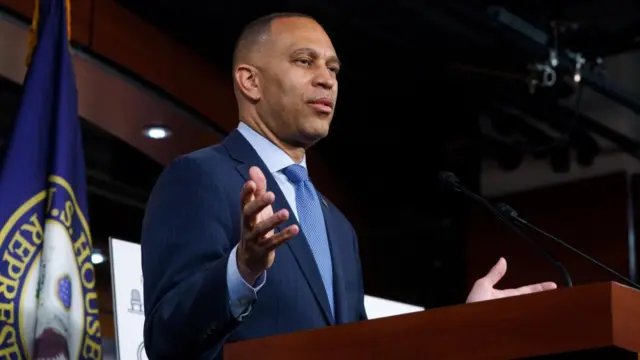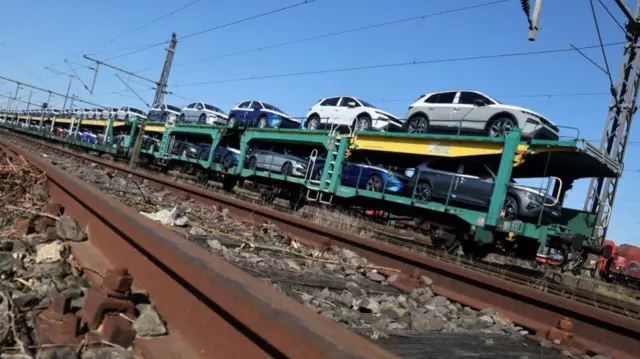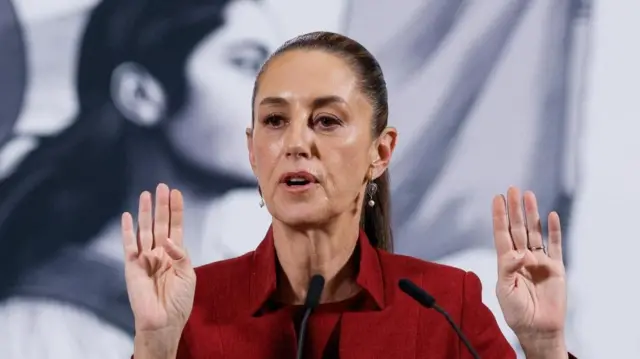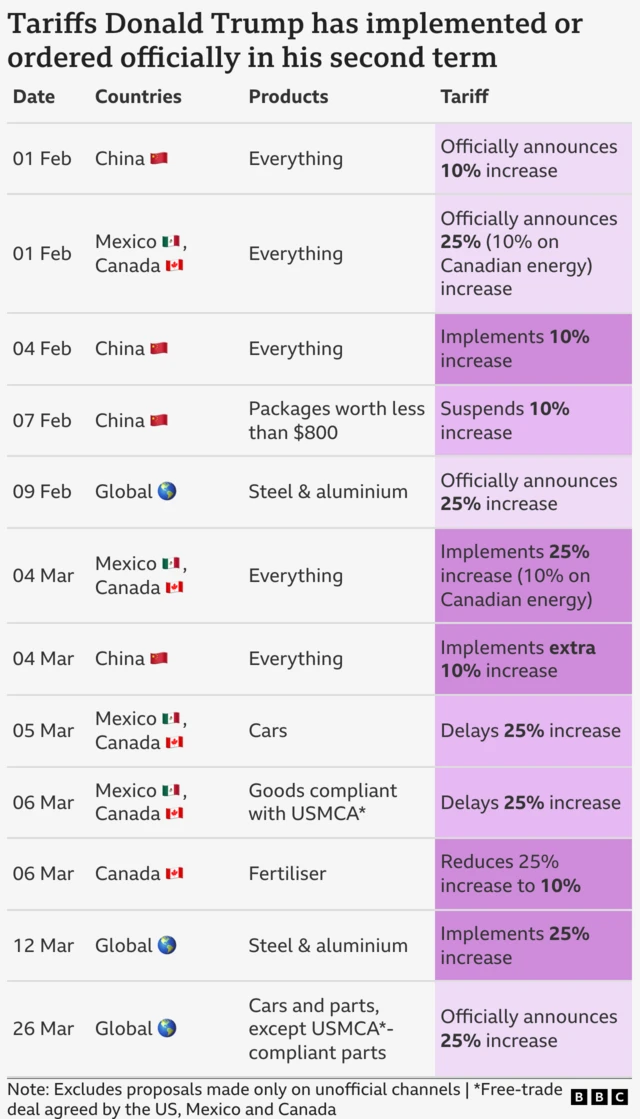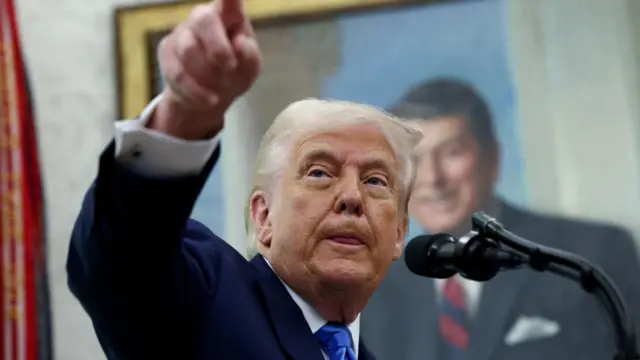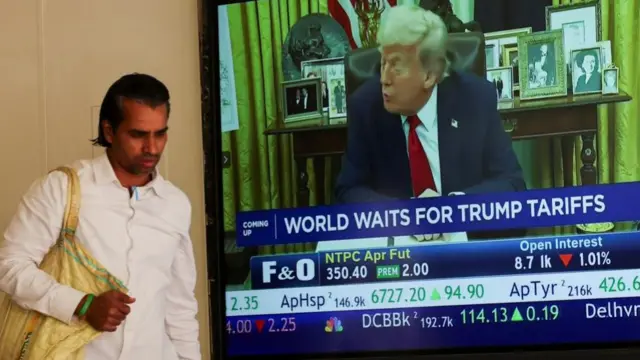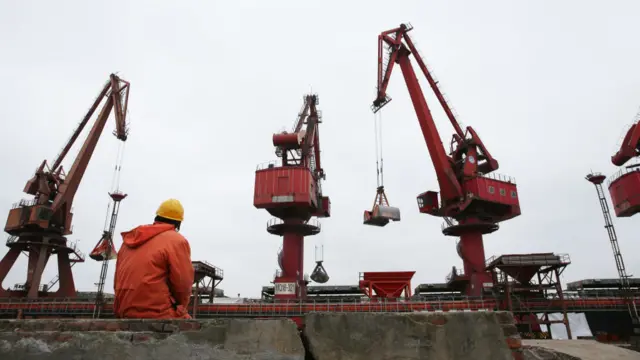Some of the arguments in favour of tariffspublished at 17:46 BST 2 April
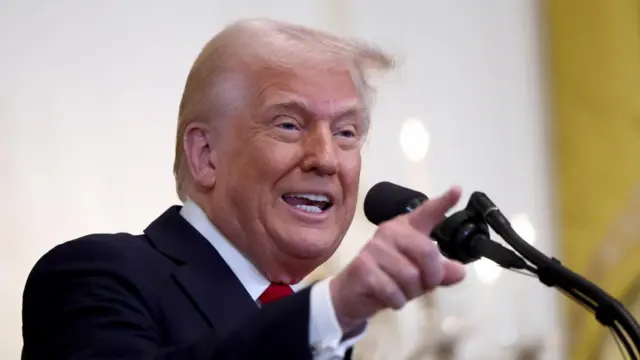 Image source, Reuters
Image source, ReutersMost countries levy tariffs in some form. Here's a brief overview of some of the arguments in favour - we’ve done the same thing for the "against" camp and will bring you that in our next post.
Protection of a fledgling industry: Some countries have used tariffs as a way to help establish a new industry domestically, before they are competitive.
National resilience: Some products, such as food or weapons, are sometimes deemed worth retaining domestically, even if they could be produced more efficiently elsewhere. Subsidies can be used for the same effect.
Fair trade: If another country has lower standards - for example on the environment or workers’ rights - or they subsidise their industries with government cash, or have tariffs themselves, then imposing tariffs can level the playing field.
Jobs: Tariffs are a charge on entry, which can incentivise businesses to make their product in the country they want to sell in. This can boost employment.
Income: Tariffs are a tax paid to the government, and so can bolster the public finances. Donald Trump, for example, says tariffs will enable him to cut taxes for American workers.
Negotiating tactic: The threat of tariffs alone can be a way to try to win concessions from others in trade talks - or in other negotiations.


